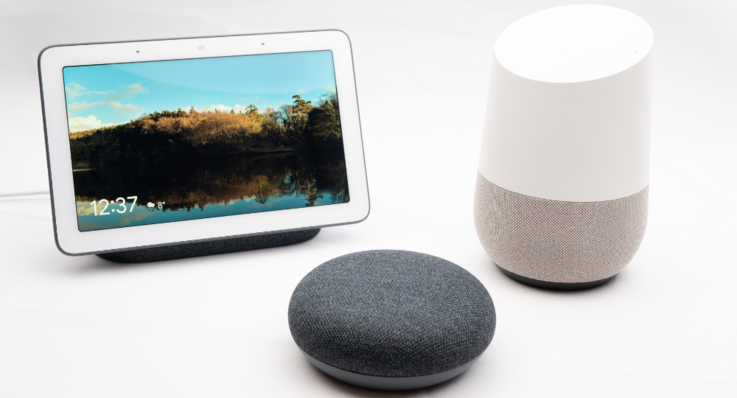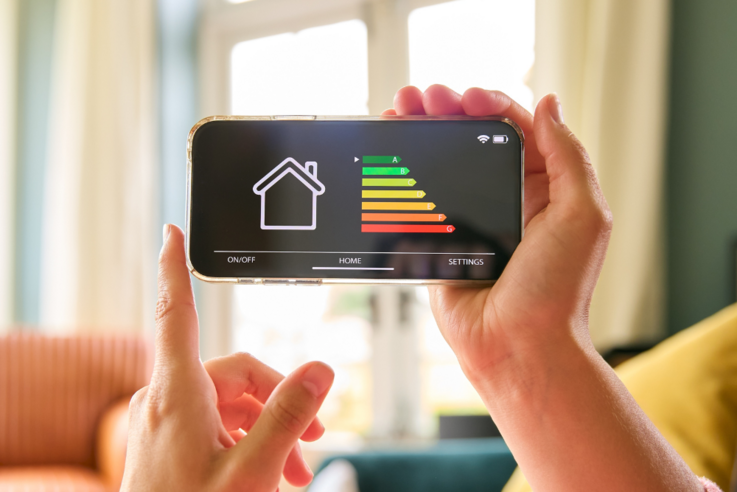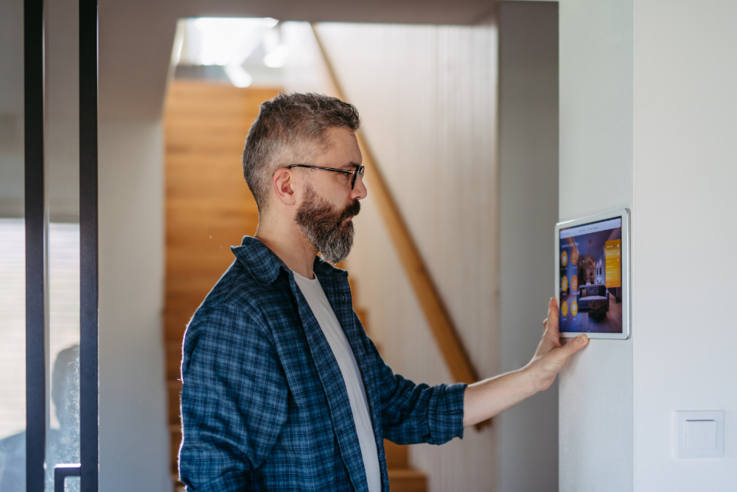12. Mar 2025
Artificial Intelligence in smart devices: How AI is making homes smarter
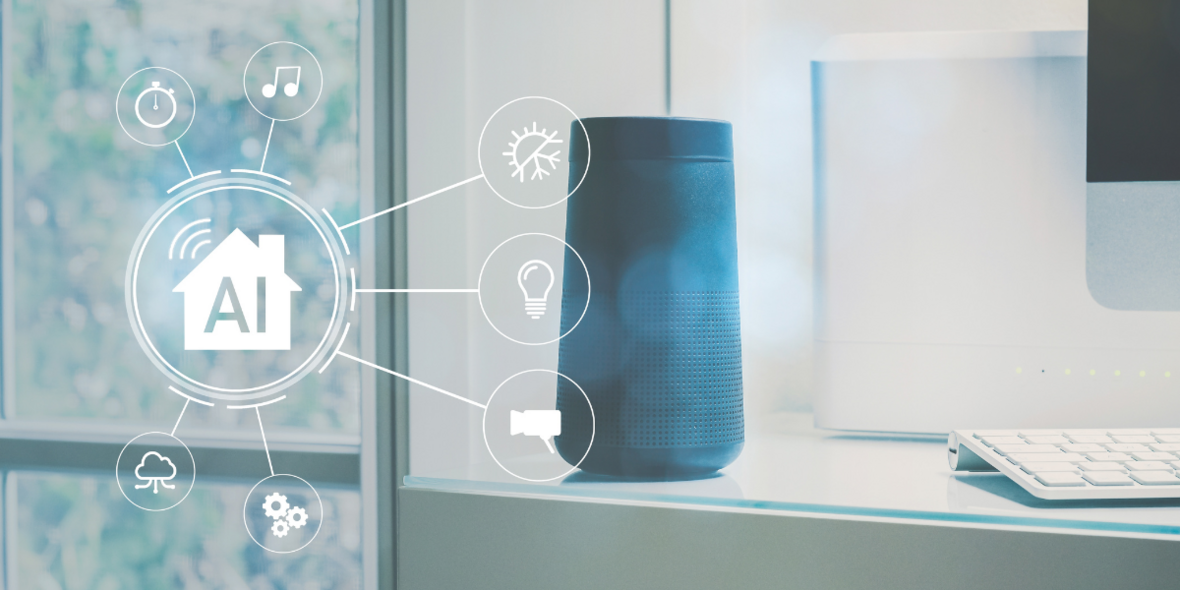
Since the launch of ChatGPT, there has been an explosive focus on generative AI. Artificial Intelligence is truly everywhere. People often mistake AI as a tool to assist them in their jobs, but this technology doesn’t limit itself to your workplace. If you have a smart speaker at home, you’ve been interacting with AI all along. But also the monitoring of your energy use through smart meters is for a large part based on AI technology. Let’s explore how AI has been influencing smart homes and will continue to do so in the near future.
AI is no newcomer to your smart home
AI has been a part of smart home technology long before the boom in generative AI chatbots. Interacting with your smart speaker, activating your smart security system, and monitoring your energy usage in real time - the outputs (actions) of these systems are all based on deep learning modules. The fully automated smart home that starts making you a peppermint tea and starts running you a bath when you show indications of a cold, is still a sci-fi dream. Nonetheless, we think it’s high time to appreciate this wonderful technology and its attribution to your smart home.
Which smart home devices use AI?
A voice assistant as your virtual companion
Voice assistants once started out as a fun gadget for your living room to play music or give a weather update. Today, they have become your virtual companion, up to date with your current workout schedule, your commuting, your social calendar and much more.
Natural Language Processing (NLP) allows these devices to understand spoken commands. Spoken language often differs significantly from written text, due to accents, word usage and context.
AI-driven speech processing enables contextual understanding and better interaction.
In smart homes, voice assistants are an integral part; they have a similar function to your control panel or your smart home mobile app. As a homeowner, you give a command to your Alexa, Sonos, Google Home or HomeKit and your smart assistant will communicate with the corresponding devices. It can be as easy as dimming the lights in the living room, or as complex as ‘Good night mode’ where a multitude of your connected devices are expected to act (e.g. smart security system is switched on, while your lighting and heating is turned off).
Always seek guidance from an automation specialist to connect your smart devices to your smart ecosystem to guarantee a seamless integration and smooth operation.
Smart meters analyze your energy consumption and suggest energy saving optimizations
You’ll always find homeowners who are interested in saving on their energy bills. Smart meters are the perfect tool to do so. They help you monitor the energy consumption of your household, providing in-depth reports. Which appliances use the most energy? Which areas in your home gulp electricity? Based on your data and AI-driven learning, your smart meter will make some suggestions to adjust your behavior, or to adjust your system settings, allowing your smart ecosystem to act proactively.
Automatically dimming the lights and turning down the thermostat in rooms where there hasn’t been any presence in half an hour, or programming your washing machine to prevent peak usage while optimally drawing electricity from your solar panels, these are just a few ways a smart meter can help you live more energy efficiently.
The advancements in smart security systems guarantee a safer home 24/7
Smart security systems consist of an array of devices, such as cameras, doorbells, smoke alarms, motion and presence sensors and more. It should come as no surprise that the technology behind these smart devices is increasingly AI-powered. For example, smart cameras and motion sensors today are able to recognize humans from pets and objects. In the future, cameras will be equipped with facial recognition, allowing your smart security system to send you a notification when an uninvited guest nears your property. But we can take it even further. Thanks to deep learning, your security cameras will be able todistinguish suspicious from harmless behavior.
Is it worth it to already invest in KNX?
You might wonder if it’s a good idea to invest in a KNX system today, while the implementation of AI in smart devices is still being explored. The short answer is: yes. By installing a KNX system today, you’ll benefit significantly longer from your investment. In addition, thanks to the KNX open standard your smart ecosystem will be compatible with future technologies and software updates. Your KNX smart home will be completely future-proof, no matter the date of installation.
AI will become an inherent part of your home
Whether you’ve already invested in a smart ecosystem, or whether you’re unconsciously using smart devices driven by AI, artificial intelligence will play an increasingly important role in any future household. AI helps to create a convenient living environment and enable a sense of real security.
Are you convinced by the power of AI? Contact a local KNX-certified professional to benefit from licensed expertise. You can rest assured that an investment in a KNX system is future-proof for AI, thanks to our open standard.
Highlights
-
 Press
PressKNX Launches KNX Standard Version 3.0.4
KNX Association is proud to announce the release of Version 3.0.4 of the KNX Standard to its manufacturer members. The KNX ... -
 News
NewsThe KNX Journal 2025 is now available
The latest edition of our annual smart home and building solutions magazine has arrived. The KNX Journal 2025 offers ... -
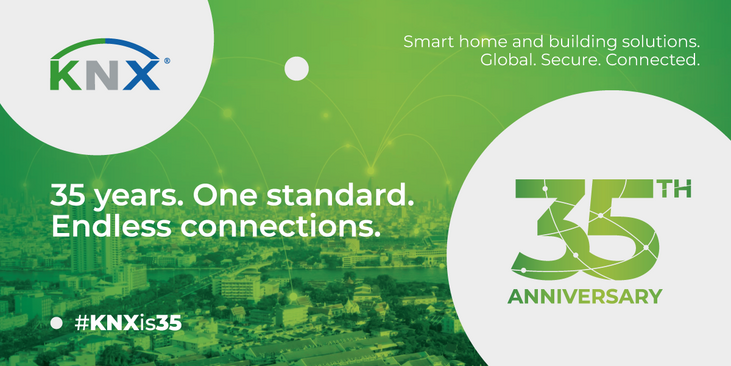 KNXtoday
KNXtoday#KNXis35: KNX history and evolution
KNX is 35. This worldwide building control standard, initiated by a handful of visionary European manufacturers, now has ...

